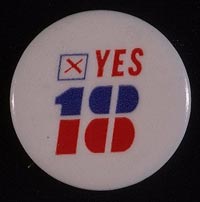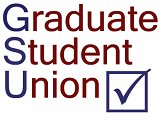July 5: an Important Anniversary for Youth and Student Organizing
Today, July 5, contains two auspicious anniversaries that speak to the power of people, especially youth, to effect change.
Voting in the Ballot Box - 40 Years Ago Today
 The second key anniversary today is President Nixon's 1971 signing of the 26th Amendment to the U.S. Constitution, which guarantees voting rights to all citizens over the age of 18. Previously, for federal elections the age had been set at 21, with several states setting 18 as the cut-off age for state and local elections.
The second key anniversary today is President Nixon's 1971 signing of the 26th Amendment to the U.S. Constitution, which guarantees voting rights to all citizens over the age of 18. Previously, for federal elections the age had been set at 21, with several states setting 18 as the cut-off age for state and local elections.
The ugly hypocrisy of sending 18-year-olds off to die in foreign lands but not allowing them to vote at home -- and the effective organizing and campaigning around it -- was a key factor in getting the Constitutional amendment passed. Electoral rights are not the pinnacle of political power for individuals and groups, but only the baseline. And today, even this bare minimum is under attack. Campus Progress reminds us:
40 years later, lawmakers are attacking this Constitutional right by introducing so-called voter ID bills. These bills require voters to show specific types of photo identification at the polls, a requirement that 18 percent of young people in the United States currently do not meet.
Many laws also limit the use of student ID cards as acceptable forms of identification. The student activism that led to the passage of the 26th Amendment should inspire and direct student activism today to protect our rights.
New Hampshire is the most recent (and glaring) example of this, with state legislators being very clear that their main beef is students voting the "wrong" way:
New Hampshire's new Republican state House speaker is pretty clear about what he thinks of college kids and how they vote. They're "foolish," Speaker William O'Brien said in a recent speech to a tea party group.
"Voting as a liberal. That's what kids do," he added, his comments taped by a state Democratic Party staffer and posted on YouTube. Students lack "life experience," and "they just vote their feelings."
Thankfully, a student-specific bill died in the state House, and New Hampshire's Governor vetoed the larger voter ID bill, but the forces of reaction are scoring victories in other states across the country.
Voting in the (Academic) Workplace
 First up, the National Labor Relations Act was signed this day in 1935 by President Roosevelt. The NLRA is the keystone law protecting workers' rights in the workplace -- not a gift from the government to unions, but a hard-won concession based on decades of effective, militant struggle. It's also crucial to understand the NLRA was also a means of institutionalizing (and gradually taming) the labor movement.
First up, the National Labor Relations Act was signed this day in 1935 by President Roosevelt. The NLRA is the keystone law protecting workers' rights in the workplace -- not a gift from the government to unions, but a hard-won concession based on decades of effective, militant struggle. It's also crucial to understand the NLRA was also a means of institutionalizing (and gradually taming) the labor movement.
The National Labor Relations Board, a committee of staggered-term Presidential appointees, is the highest decision-making body set up by the NLRA. The NLRB declared in 2004, in a highly contentious decision, that graduate students who taught and worked for private universities could not be recognized as unionizable "employees" under the law (grad students at public universities are governed by state law). This was a stunning setback to a student labor movement that was rapidly gaining steam at the time (I mention an example of this in a prior book review).
Thankfully, the composition of the Board has changed, and they're re-opening the issue -- the first step toward overturning the 2004 decision. Just last month, NYU grad students won a second hearing on their eligibility to hold a union election:
Research and teaching assistants at New York University (NYU) last week moved one step closer to regaining their rights under federal law to form a union and bargain for improvements at work.
Graduate assistants won a major victory in 2010, when the National Labor Relations Board (NLRB) ordered a new hearing on a ruling, which had prevented some 1,800 graduate assistants at NYU from voting for union representation. The board based its ruling on a 2004 NLRB decision that graduate teaching and research assistants were not employees and could not form a union.
Last week, in the NLRB-ordered hearing, acting NLRB Regional Director Elbert Tellem accepted the key claim presented by the assistants, members of Graduate Student Organizing Committee/UAW (GSOC/UAW Local 2110), that they are university employees.
The Board originally signaled its desire to revisit grad student unionization back in 2010, which gives you a sense of how long these things take. But regardless, regaining grad student unionization rights is a key foundation point for any movement for student power on campus.
~~
The establishment of youth voting rights and labor rights were attacks on elite power. Both of these anniversaries, and their history since, show that such gains can be just as quickly eroded and lost as they are won, and the only way to secure these victories is to continue organizing momentum and reaching for ever-higher goals. The best defense is a good offense, and the object of youth organizers should be to never find themselves back on their heels, either due to defeat -- or victory.